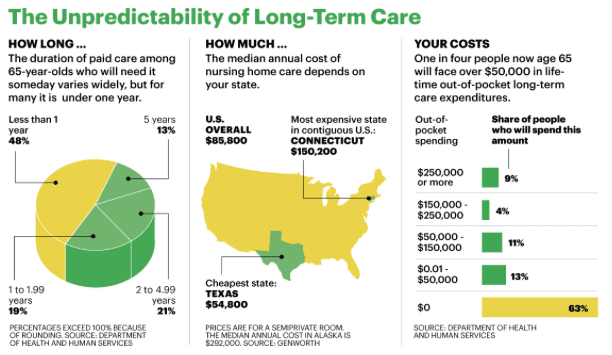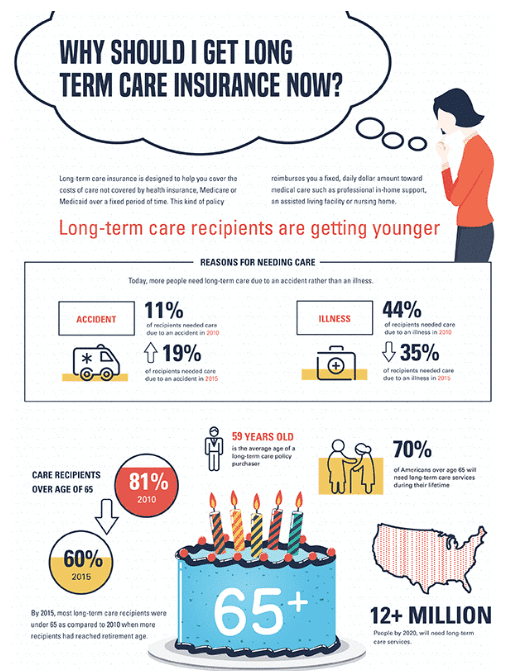Summer Road Trip Preparation
/in Auto Insurance, Insurance Agency Near Me, Insurance Agent Near Me, Insurance Tips /by Catherine DanglerFinding fun activities within your local community can be a great way to spend time with your family this summer. However, summer travel and getaways can be a great way to give your family new and unique experiences; road trips can be a fantastic bonding experience, while at the same time educational. Some tend to avoid road trips with their families because of tales of the intolerable stress they cause; road trips, though, don’t have to be stressful!
Prepare for the Worst: Weekend & Vacation Rental Insurance
/in Auto Insurance, Community, Dickey McCay News, Home Insurance, Insurance Agency Near Me, Insurance Agent Near Me, Insurance Tips, Rental Insurance /by Catherine DanglerEveryone looks forward to a fun family vacation during the summer. Some of my best memories from my childhood have been made during vacations and road trips that I have taken with my parents and siblings. There was always so much to look forward to during these trips: fun games during the long car rides, the interesting stops along the way, and even the forced family photos that we could look back on years later. Since this is something near and dear to my heart, I decided recently to buy a second home to rent out as a vacation property; I wanted to help facilitate memorable vacations for other families, just as I had as a child.
Liability Insurance
/in Business Insurance, Insurance Agency Near Me, Insurance Tips /by Dickey McCay TeamGeneral Liability for the Self-Employed and Business Owners
Business owners and self-employed professionals need protection whether they have been in business for decades or they just began their professional career. This type of protection is known as General Liability Insurance, and it covers professionals against the cost of compensation claims due to malpractice, personal injury, and/or negligence. Depending on the type of business you are in and where your business is located, there are a few different options for you to choose from when looking for liability insurance nearby. Here, we help you understand the top five types of general liability policies and example of why businesses invest in these types of insurances.
1) Commercial General Liability (CGL) Policy:
A CGL policy protects your business against the claims arising out of bodily injury or property damage arising out of premises, operations, products, or completed operations. Additionally, it covers losses caused due to advertising and personal injury.
For example, a customer visits a store specializing in home building supplies in North Georgia . While looking through building samples, the customer falls and suffers a leg injury. The commercial general liability policy bought by the building company covers the medical expenses of the bodily injury of the customer so that the company doesn’t suffer any other losses.

2) Directors and Officers Liability Insurance:
Type of liability insurance which reimburses for loss for defense costs from legal action for alleged wrongful acts of directors and officers. Such coverage can extend to defense costs arising out of criminal and regulatory investigations/trials as well. This type of liability policy covers the directors and officers against the claims made by:
- Employees
- Suppliers
- Competitors
- Regulators
- Customers
- Shareholders
- Other stakeholders
For example, recently a company dismissed three employees in order to save money, but the eldest employee filed a suit claiming that a particular director had always discriminated him on the grounds of him being significantly older than most of the other employees. 
Of course, after the investigation it was proven he was dismissed based on cost-cutting measures. After the trial, the company did not have to forfeit losses because of their directors and officers liability insurance bought prior to the claim protected them.
3) Professional Indemnity Insurance:
This type of policy covers the businesses or individuals who provide advice or a professional service to clients. In a case such as being sued, this type of policy will cover the compensation claims.
 Let’s say you own a mattress company and one of your employees suggests a customer who is pregnant should get a foam bed. Afterward she begins to suffer severe back pain and not only wants to return the mattress and get her money back, but she also wants to sue for doctor bills for back pain. In this case, your Indemnity Insurance will cover the costs!
Let’s say you own a mattress company and one of your employees suggests a customer who is pregnant should get a foam bed. Afterward she begins to suffer severe back pain and not only wants to return the mattress and get her money back, but she also wants to sue for doctor bills for back pain. In this case, your Indemnity Insurance will cover the costs!
4) Cyber Risk Insurance:
Cyber Insurance Policies are designed to help your organization or business cover against the liability or property losses due to the electronic activity that you use whether it is online or otherwise. This policy helps to offset the risk involved with recovery after a cyber-related security breach.

One example of this in the business realm would be if a dismissed former employee of a company steals the names, addresses, and social security numbers from its customer files then turns around and sells this information to a fraudulent person who uses the information it to obtain credit cards. The affected customers file a complaint against the IT company for their breach of identity. With the policy obtained by the IT firm, however, the cyber risk insurance would aid in settling the claims.
5) Commercial crime insurance:
This type of liability policy protects the businesses against losses due to third-party fraud or employee fidelity, protecting against:
- Dishonest Employee
- Theft
- Burglary
- Robbery
- Forgery
- Computer Fraud
We can see a recent example of this in a city where Dickey McCay has an office. An office manager was arrested for stealing nearly $60,000 from her employer over five years. In this case, had the company bought commercial crime insurance, they would have been able to protect themselves from the most commonly reported general liability claim: theft.

Our Takeaways:
- Good liability risk management can reduce the chances that your business will be sued, but it can never eliminate the risk entirely.
- You or a member of your organization can make a mistake
- Technology helps your company, but also increases chance for security breaches and/or theft, so insuring your business/organization against these is a necessity.
- Depending on the degree of harm and the number of people injured and/or value of property damaged, a lawsuit could bankrupt your business, making liability insurance a necessary investment
As always, Dickey McCay is here to help answer any questions you may have. Call us today to help protect your business or organization against any future stresses or financial burdens.

Long Term Care Insurance
/in Dickey McCay News, Insurance Tips, Long-Term Care Insurance /by Dickey McCay TeamLong-Term Care Insurance – Important Information
When my husband was in middle school, his grandmother passed away and his grandfather who was retired and in relatively good health felt he could no longer live alone in his home about five hours away. Then only fourteen years-old, my husband says their family seemed happy to bring in his grandfather. My mother-in-law, however, remembers it a little differently: “It was like having another child,” she told me. “Suddenly I had more laundry, another mouth to feed, someone I had to drive to the doctor or grocery store. I was a wife, mother, teacher, and suddenly a caregiver as well.”

After a month with their new roommate, the family felt it was time for Grandaddy Carter to find an assisted living facility. However, even though he had health insurance and Medicare, they were shocked to find out that neither of these programs pay for any sort of Long Term Care Services. “We had to get the entire family together and talk about how we were going to come together to pay for Dad’s stay,” my father-in-law describes. “We ended up picking up much of the bill ourselves. With young kids and full-time jobs ourselves, it was too much to have him living with us. And we paid for that decision financially, and I am really not sure we could have done so today.”
When I ask their family about this time, they are nostalgic for the time their grandfather’s spent with them, but my mother-in-law can only remember the sheer exhaustion, both physically and mentally. Beyond being stressed, she says she wasn’t sure if she was doing what would be best in the long run for her kids as well as what was best or her father-in-law’s health. “I felt so torn. Looking back I am grateful for the experience and what our family learned and the time we spent together, but at the time it was really difficult. When I look at my kids now I am thankful they got to see what caring for an older person was like, and I wonder which one of them would take care of me one day.”
As her own children have moved to different parts of the country hours from home, my mother-in-law decided to buy long-term care insurance for her and her husband at a relatively young (50). Long-term care is essentially all of the services my mother-in-law took care of that are not covered by the typical individual health insurance, including assistance with typical daily activities such as cleaning and dressing oneself, or even simply getting in and out of bed. Since seeing her own father-in-law need help with basic needs, she felt like she needed to take steps that ensured she would be cared for later in life.
With their purchase, they felt like they had some control of their future needs especially with their children away from home. Like most policies, theirs will take care of all of their future needs that many people forget to consider such as assigning a care coordinator to help their family assess future needs, plan for care, and even identify caregivers who can visit them in their home. Their policy also covers home modifications such as ramps or grab bars in the shower so they can stay in their home longer. Ultimately if they do need care beyond in-home care, they can be taken to an assisted living facility/nursing home, allowing our family to be able to afford the best care possible.
When we talk about this now, my mother-in-law speaks about her decision ten years ago with confidence: “My health is good and I believe I will live a long, healthy life. Of course there’s a chance that someday I’ll need help, and when that happens my long-term care insurance will help me to remain in my own home. It will pay for caregivers to do the heavy lifting. When my children or grandchildren visit, it will not be work, it will be to spend time with me.”
Buying long-term care insurance is the best way to prepare for your own or your family member’s futures. Beyond helping in old age, a long-term care insurance policy helps cover the costs of that care when you have a chronic medical condition, a disability or a disorder such as Alzheimer’s disease. I am thankful my mother and father-in-law were aware enough to purchase long term care insurance at an early age, and I hope my own family and others learn to do the same to avoid leaving the burden of care and finances on others.
Helpful Tips and Factors When Searching For Your Long-Term Care Plan
As you begin to look for your plan, we have included four important factors to keep in mind for yourself or perhaps your own parents and grandparents:
- The earlier you buy long term care insurance, the more affordable your policy will be. Simply put, waiting to purchase coverage until you actually need assisted care is not an option because people who already have a debilitating condition will not qualify for coverage. Most people buy long term care insurance in their mid-50s to mid-60s, but keep in mind that “among 65-year-olds, 70% will use some form of long-term care in the years ahead,” this according to the U.S. Department of Health and Human Service. We suggest buying your long-term care insurance plan when you are around 55-60 years-old because the likelihood of filing a claim before that age is slim. Statistically,“89% of LTC claims are filed for people over age 70.”

- When most people think of purchasing long term care, they assume that regular health insurance or Medicare will provide enough coverage. However, these policies and services only cover limited nursing home stays or small amounts of home health care when you require skilled nursing or even rehabilitation. They also will not cover supervision or assistance with day-to-day tasks.
- The cost of long-term care insurance has a lot of variants:
- Your age and health: The older you are and the more health problems you have, the more you’ll pay when you buy a policy.
- Gender: Women generally pay more than men because they live longer and have a greater chance of making long-term care insurance claims.
- Marital status: Premiums are lower for married people than single people.
- Insurance company: Prices for the same amount of coverage will vary among insurance companies. That’s why it’s important to compare quotes from different carriers.
- Amount of coverage: You’ll pay more for richer coverage, such as higher limits on the daily and lifetime benefits, cost-of-living adjustments to protect against inflation, shorter elimination periods, and fewer restrictions on the types of care covered.
- Prices change: The price could go up after you buy a policy since prices are not guaranteed to stay the same over your lifetime.
- An Example: A single 55-year-old man in good health buying new coverage can expect to pay an average of $1,015 a year for a long-term care policy that pays out $150 a day for up to three years or $164,000 in total benefits, according to a 2016 price index from the American Association for Long-Term Care Insurance. For the same policy, a single 55-year-old woman can expect to pay an average of $1,490 a year. The average combined premiums for a 60-year-old couple, each buying that amount of coverage, are $2,010 a year.
4. There are tax advantages of buying long-term care insurance if you itemize deductions, especially as you get older. The federal and some state tax codes let you count part or all of long-term care insurance premiums as medical expenses, which are tax deductible if they meet a certain threshold. The limits for the amount of premiums you can deduct increase with your age.
As you continue your journey through life, aging, and your role changes within your family, we want to help you make the best decision for your health and finances. Call Dickey McCay today and let us help you decide what Long Term-Care plan is best for you.
Is Long-Term Care Insurance Worth the Investment?

Hours of Operation
Sunday: Closed
Monday: 8:30am – 4:45pm
Tuesday: 8:30am – 4:45pm
Wednesday: 8:30am – 4:30pm
Thursday: 8:30am – 4:45pm
Friday: 8:30am – 4:45pm
Saturday: 9:00am – 12:00pm
Contact Us
Phone: 423-496-3366
Toll Free: 855-876-9779
Fax: 423-496-3368
146 Ocoee St.
P.O. Box 1161
Copperhill, Tennessee 37317

